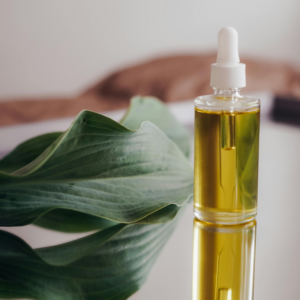Healthy Skin
Retinol rules: what other ingredients can you use alongside?
Retinol is renowned in the beauty industry for its proven ability to reduce fine lines, pigmentation, breakouts and enlarged pores.
The skincare star works by increasing cell-turnover and promoting collagen production for a healthy, youthful glow. That being said, retinol – a derivative of vitamin A – is a potent ingredient that can cause additional dryness and irritation (especially to start with).
To help minimise this, there are a few retinol rules to follow: use in your nighttime routine, apply sparingly, and remember to wear SPF. And be cautious of other ingredients you’re applying at the same time.
So what ingredients shouldn’t you mix with retinol? As a rule of thumb, here are the ingredients you can and can’t use at the same time as retinol.
 Ingredients you shouldn’t mix with retinol
Ingredients you shouldn’t mix with retinol
While you may not think twice about slathering on serum after serum, overly complicating your skincare routine can lead to a disrupted skin barrier and other complexion concerns. Less often means more in skincare (contrary to what the internet might often tell you!).
It’s important to do your research to ensure your skincare products compliment one another when layering at the same time.
Vitamin C, a powerful antioxidant, and retinol are both excellent for reducing pigmentation. But, while vitamin C and retinol can be used separately in your AM and PM routine, we wouldn’t advise applying this power coupling at the same time as it can irritate your complexion.
And most experts agree that we should avoid layering retinol together with AHAs (such as glycolic acid, lactic acid and mandelic acid) and BHAs (such as saliyclic acid) as their exfoliating effects can become too much.
Skincare cycling can be a helpful method however, if you would like to use these ingredients in your routine on separate days.
Retinol and benzoyl peroxide can also be extremely drying and irritating when used together, so avoid.
Ingredients you can mix with retinol
 Generally speaking, it’s best not to layer too many active ingredients with retinol at the same time to avoid running into skin issues.
Generally speaking, it’s best not to layer too many active ingredients with retinol at the same time to avoid running into skin issues.
If you’re not confident picking your serums, pick a multi-ingredient product instead as these will have been formulated and tested by the experts.
However, there are a handful of skincare ingredients that are complimentary to retinol.
As retinol can cause irritation and dryness, hyaluronic acid makes a perfect partner to provide additional hydration support. It helps to soothe the skin and doesn’t interfere with the effectiveness of vitamin A.
Niacinamide also works well when applied with retinol, helping to keep dryness and sensitivity at bay.
Skincare tip: applying a moisturiser before your retinol can help to minimise irritation to start with.
Learn more about the do’s and don’ts when applying retinol here

 Ingredients you shouldn’t mix with retinol
Ingredients you shouldn’t mix with retinol



